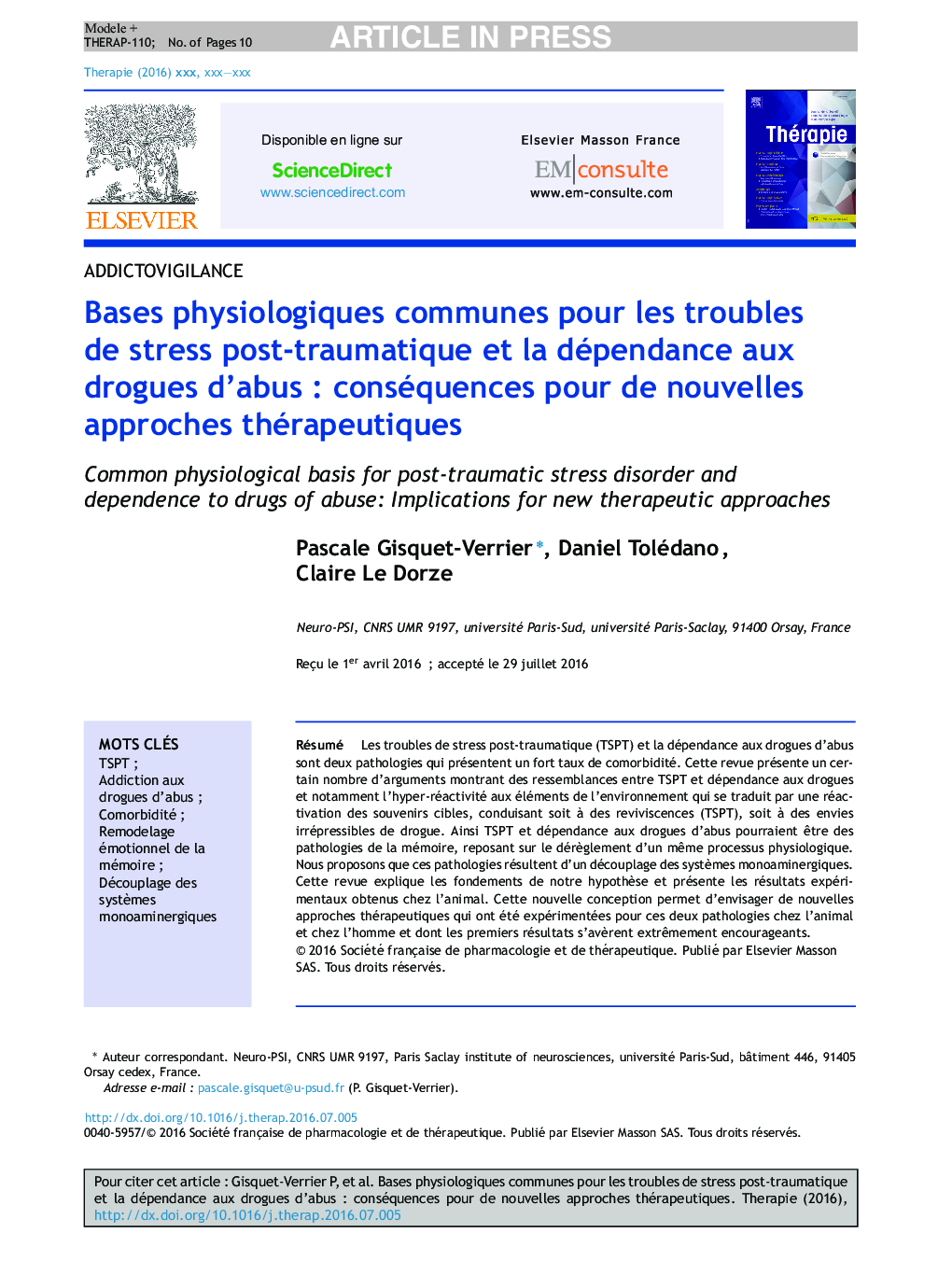| Article ID | Journal | Published Year | Pages | File Type |
|---|---|---|---|---|
| 5559082 | Thérapie | 2017 | 10 Pages |
Abstract
Post-traumatic stress disorder (PTSD) and addiction to drugs of abuse are two common diseases, showing high comorbidity rates. This review presents a number of evidence showing similarities between these two pathologies, especially the hyper-responsiveness to environmental cues inducing a reactivation of the target memory leading either to re-experiencing (PTSD), or drug craving. Accordingly, PTSD and addiction to drug of abuse might by considered as memory pathologies, underlined by the same physiological process. We propose that these two pathologies rely on an uncoupling of the monoaminergic systems. According to this hypothesis, exposure to extreme conditions, either negative (trauma) or positive (drugs) induced a loss of the reciprocal control that one system usually exerts on the other monoaminergic system, resulting to an uncoupling between the noradrenergic and the serotonergic systems. Results obtained in our laboratory, using animal models of these pathologies, demonstrate that after a trauma, such as after repeated drug injections, rats developed both a behavioral sensitization (increases of the locomotion in response to a stimulation of the monoaminergic systems) and a pharmacological sensitization (increases of noradrenergic release within the prefrontal cortex). These results support our hypothesis and led us to propose new and innovative therapeutic approaches consisting either to induce a re-coupling of the monoaminergic systems, or to modify the pathological memories by using an emotional memory remodeling. Extremely encouraging results have already been obtained in rats and in humans, opening new and promising therapeutic avenues.
Related Topics
Health Sciences
Pharmacology, Toxicology and Pharmaceutical Science
Pharmacology, Toxicology and Pharmaceutics (General)
Authors
Pascale Gisquet-Verrier, Daniel Tolédano, Claire Le Dorze,
